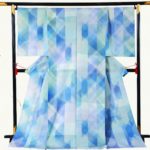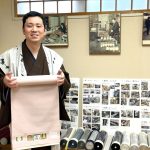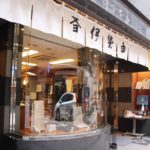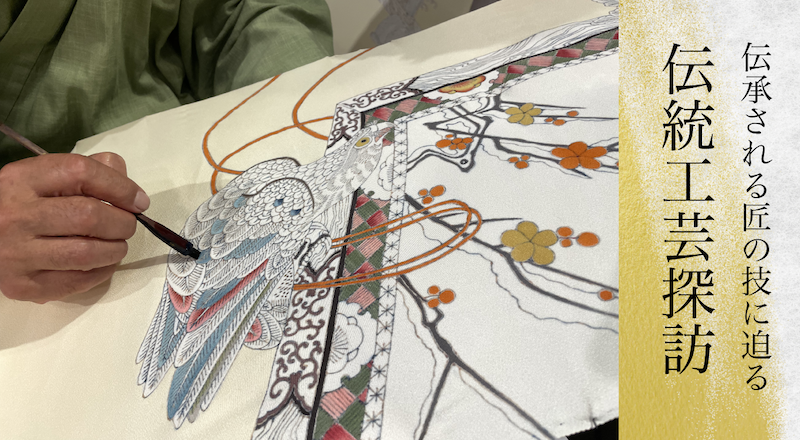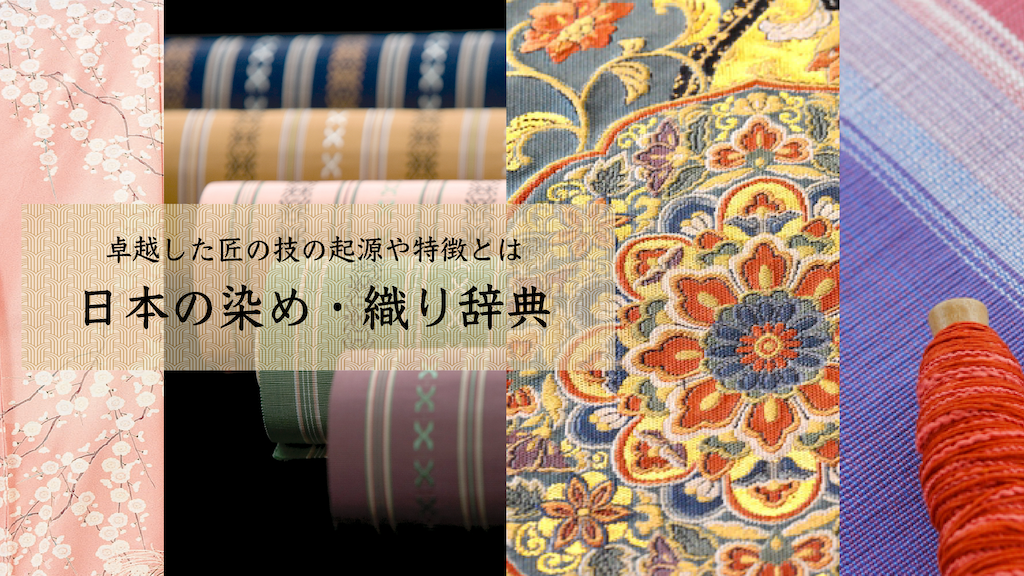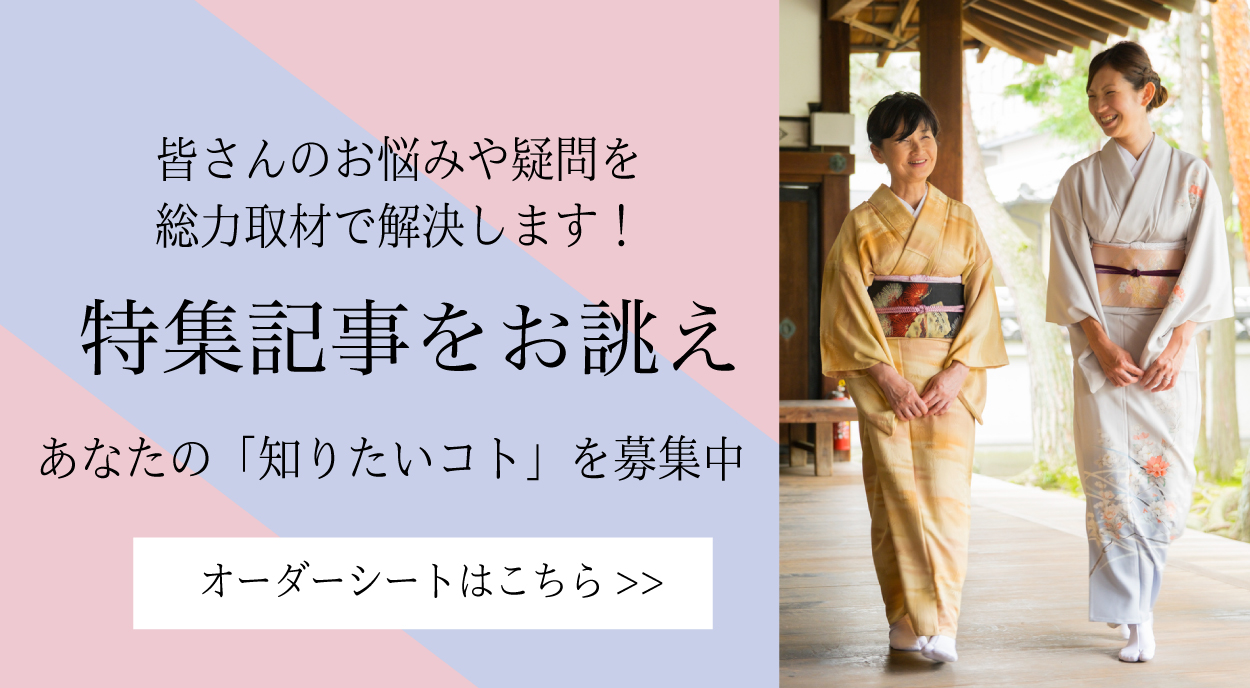“Rightful Commerce” and
Conveying the Aesthetics of Japan
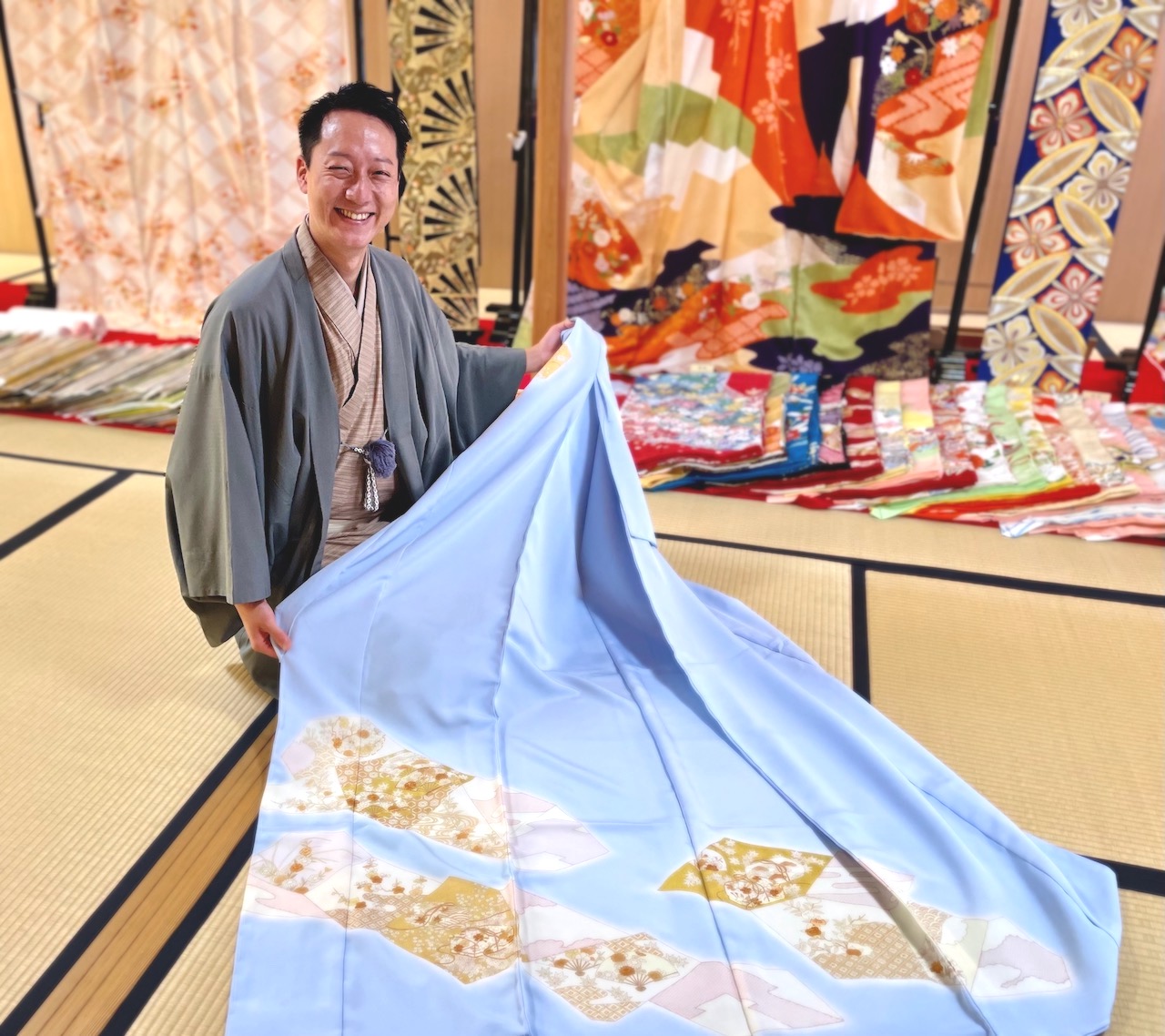
Founded in 1584, Erizen is a long-established Kimono Boutique(Gofukuten)with a rich 430-year history. With locations in Kyoto, Tokyo, and Nagoya, it offers a distinguished selection of elegant Kimono, known as the “Erizen Taste,” centered around the traditional beauty of Kyoto-style Yuzen dyeing. We spoke with Mr. Akira Kamei, President and CEO, to learn more about the history and enduring appeal of this beloved institution among kimono enthusiasts.
In This Article:
- The 430-year history of Erizen, a prestigious kimono boutique founded in 1584
- The refined aesthetic of “Erizen-gonomi”, celebrated for its graceful Kyoto-style elegance
- The uniquely Japanese sense of beauty expressed through haneri culture
- The philosophy behind the company’s guiding principle, Right and Honest Trade
- Insights from Mr. Akira Kamei, the young president leading Erizen into a new era
A prestigious kimono boutique founded in 1584, which began as a haneri (collar lining) specialty shop.
The name Erizen combines “Eri” (meaning kimono collar) and “Zen” from the name of its founder, Mr. Zensuke Yamazaki. Originally established as a Kyoto dyeing house, the business evolved into a specialty shop for han-eri (decorative undercollars) and traditional accessories. Historical records show that the shop was visited by cultural luminaries in the Meiji era.
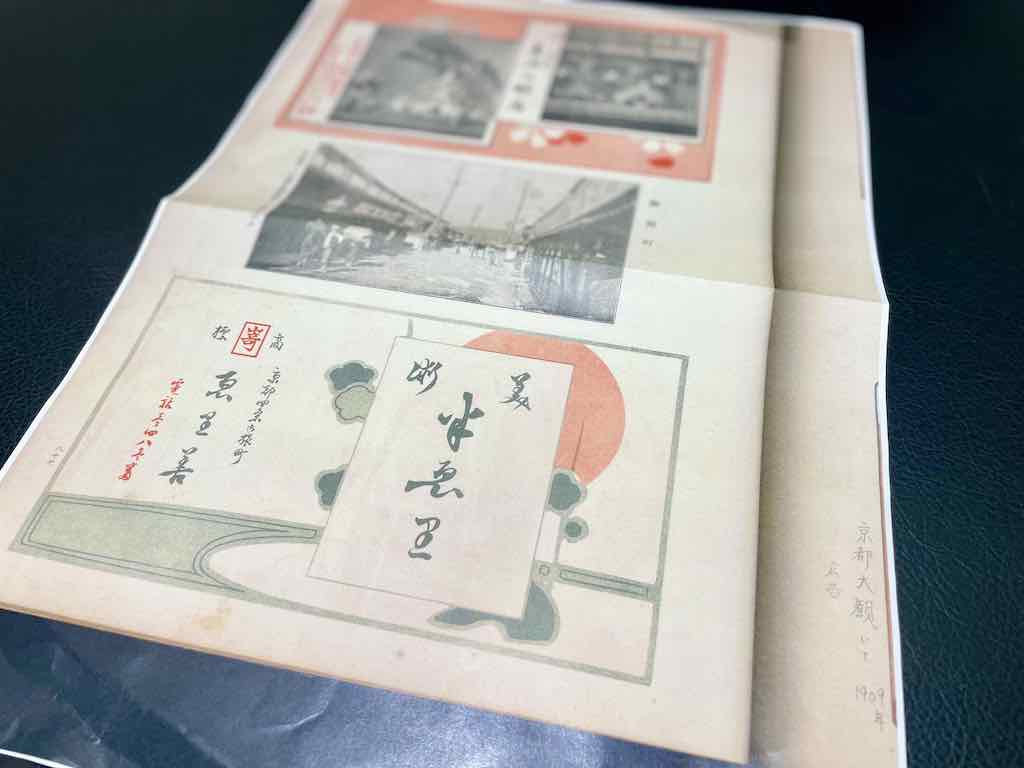
During the Meiji and Taisho periods, coordinating han-eri became a central part of kimono styling. As a result, many skilled artisans and retailers specialized in these ornamental collars. Though han-eri are only subtly visible at the neckline, they were considered a key area for expressing refined taste. This small yet prominent space was adorned with intricate techniques such as shibori (tie-dye), dyeing, and embroidery — embodying the belief that true beauty lies in the details.
“Not everyone could afford multiple luxury kimono,” notes Mr. Kamei, “but they could choose a fine collar to enjoy.”
The boutique’s archive includes a rich collection of han-eri crafted before World War II. These exquisite pieces — many featuring delicate embroidery that seems to rise from the fabric — convey an atmosphere of elegance and individuality, even through photographs.
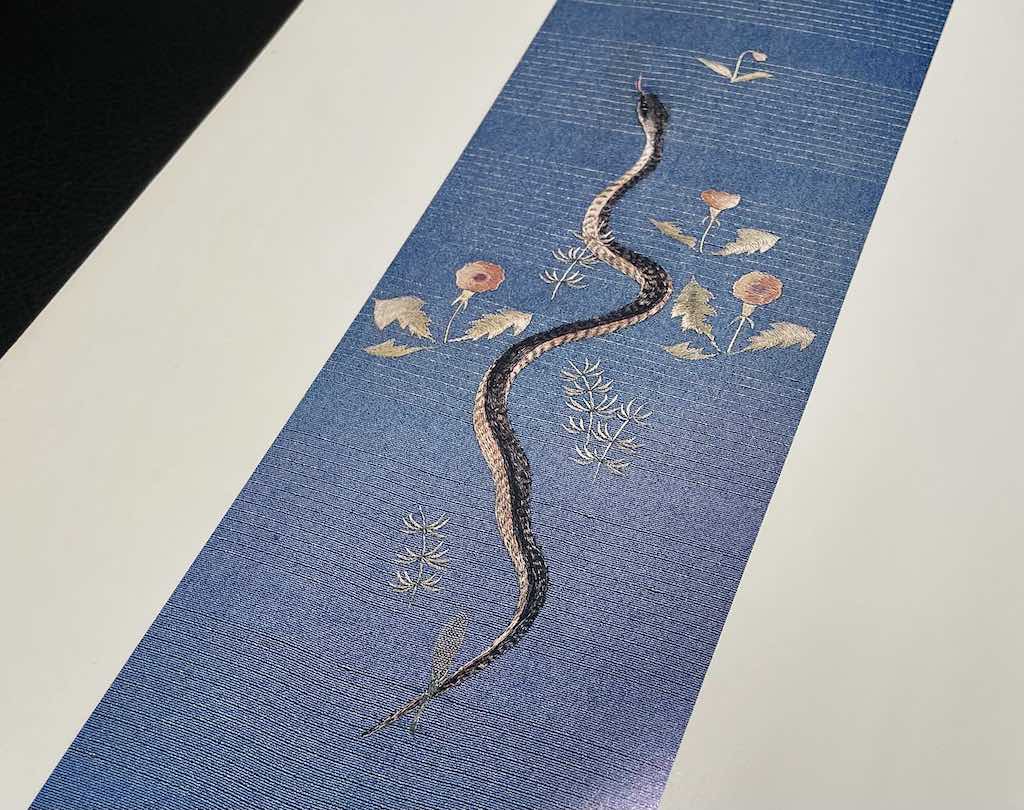
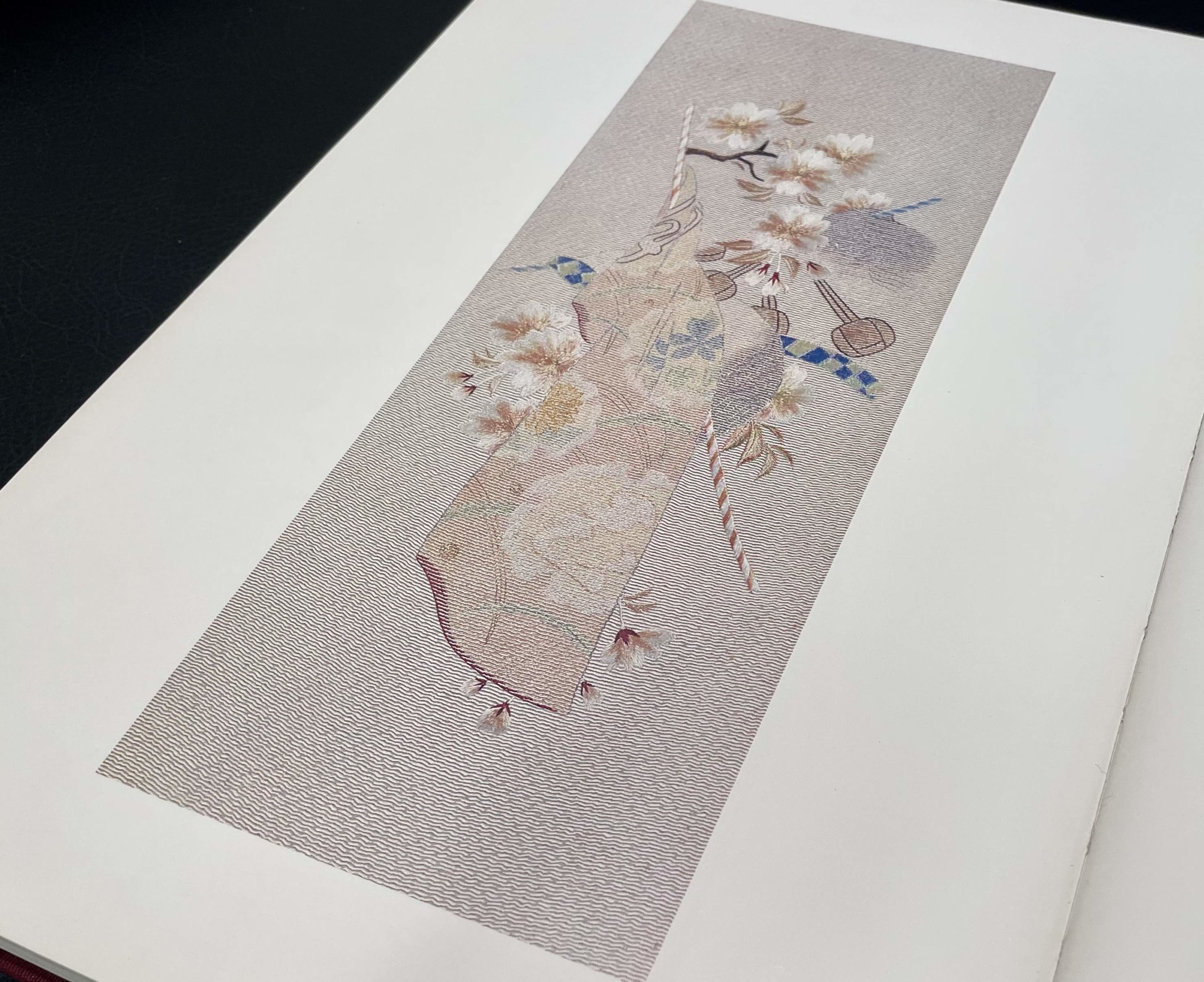
Grace in What You Cannot See
Dressing for the Viewer, Not the Self
Mr. Kamei shared a saying that he holds dear as a guiding principle of the company’s founding spirit.
“A haiku poet who was close to the shop owner at the time gifted us a piece of calligraphy that reads, ‘Do not spend less on han-eri than you would on kimono.’ In other words, one should spare no expense when it comes to han-eri, and rather than storing them away, use them often and enjoy them. I believe this mindset — devoting care and resources to something as fleeting as a collar — reflects a uniquely Japanese sense of beauty.”
He went on to explain:
“Western clothing is often displayed on a mannequin facing forward, but kimono are hung on emon-kake racks to showcase the back. The main designs of the kimono and obi are not visible to the wearer — they exist to delight the viewer. This sense of hospitality, of dressing for others, is central to our culture. The han-eri is no different: though invisible to oneself, it sits at the exact point where another’s gaze falls. To express one’s individuality or sense of playfulness there is, I believe, a long-cherished Japanese value.”
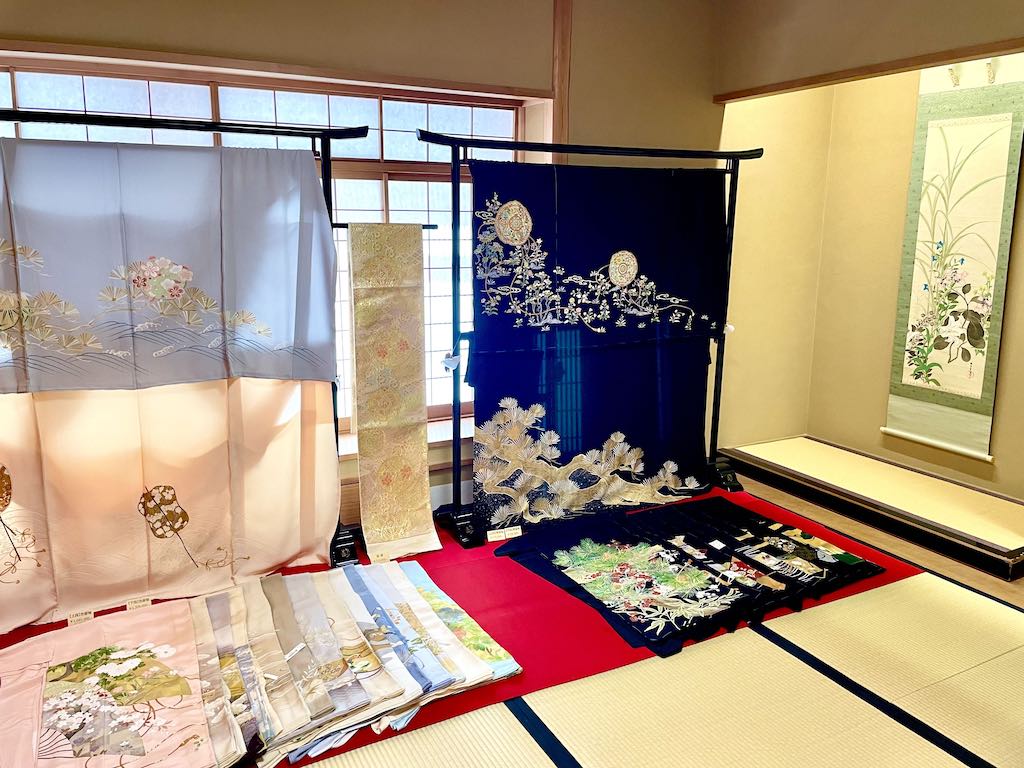
Erizen’s Guiding Principle
“Rightful Commerce” Rooted in Integrity
Although Erizen thrived as a specialty store for han-eri (decorative undercollars), the Pacific War brought a period when business was no longer possible. In 1947, six individuals who shared a deep passion for kimono came together to re-establish the company as a corporation. Believing that “the joy of kimono lies in wearing them,” they expanded beyond formalwear to include more playful and stylish pieces. Each founding member brought their unique sensibility, enabling the company to respond attentively to the diverse needs of its customers.
However, as mass production increased, poorly made goods began to circulate in the market. Concerned by this trend, Mr. Kamei’s grandfather — one of the founding members — set forth a philosophy that remains the company’s core today: Seisho, or “rightful commerce.” It is a commitment to always conducting business with sincerity and care, no matter how times may change.
“People say the role of a company is to solve what is ‘unavailable,’ ‘unknown,’ or ‘unattainable,’” says Mr. Kamei. “In our industry, fortunately, there’s still much that remains to be discovered. That’s precisely why we feel it is our mission to walk alongside customers — listening carefully and helping them enjoy kimono in ways that truly suit their lives.”
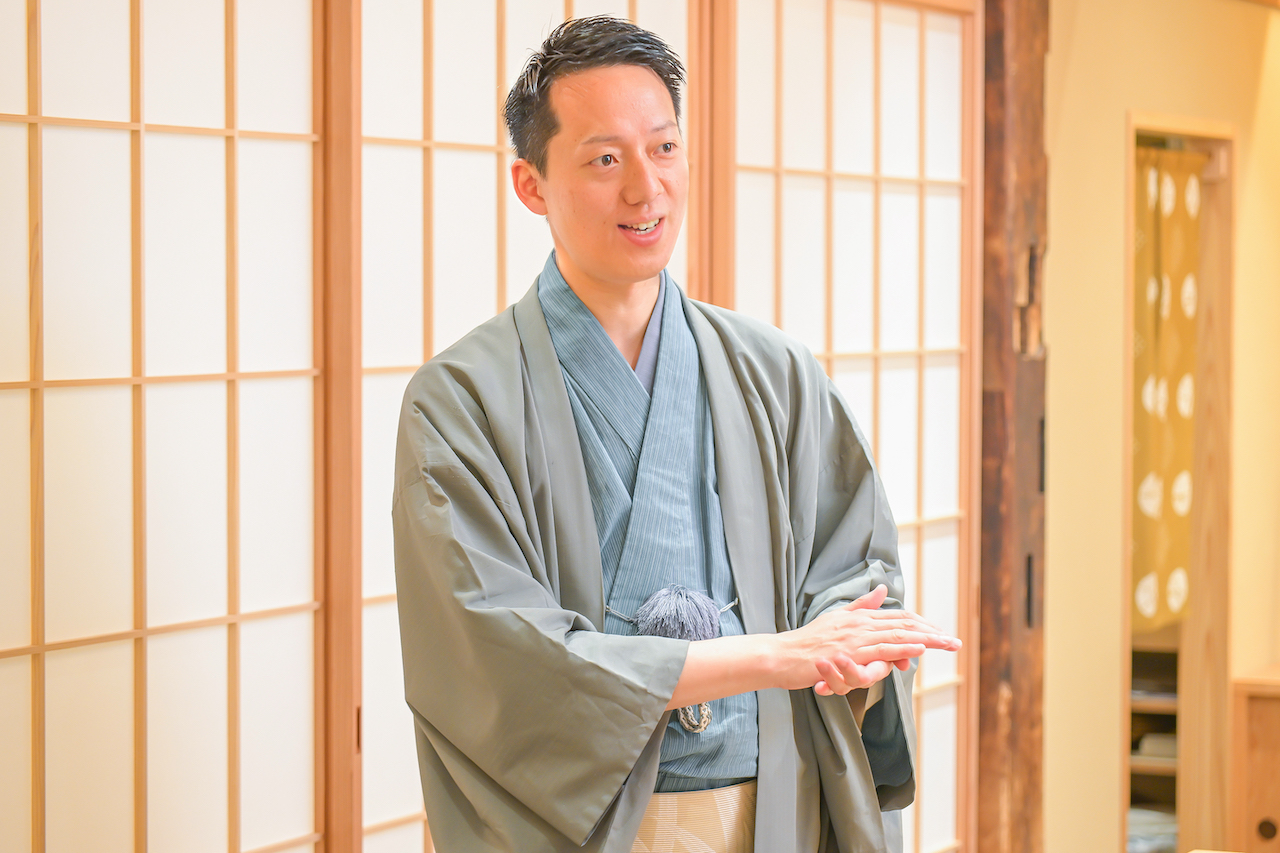
Kimono as a Lifelong Companion — Fostering
Enduring Relationships Through Personalized Support
With the number of kimono retailers declining across Japan, Mr. Kamei emphasizes that today’s kimono boutiques must go beyond selling. They should serve as approachable, trusted partners — places where customers can drop in for advice and ongoing support. The key, he says, lies in helping people integrate kimono into their daily lives, not just enjoy them as one-time experiences.
“What makes a kimono boutique truly valuable is its ability to offer deeply personal guidance,” Mr. Kamei explains. “We take the time to understand each customer’s wardrobe, lifestyle, and occasion — offering thoughtful suggestions on how to make the most of what they already own, or how to coordinate pieces with care. That level of attention is what defines us.”
In many industries today, the buyer is expected to bear all the responsibility after purchase. But we believe that when we offer suggestions, we also share in the responsibility for that item. That’s the true role of a retailer — to stand by the customer, not just at the point of sale, but long after.
We truly value long-term relationships. It would be an honor if Erizen could become a kind of lifelong partner to our customers — a bond built not on transactions, but shared journeys.”
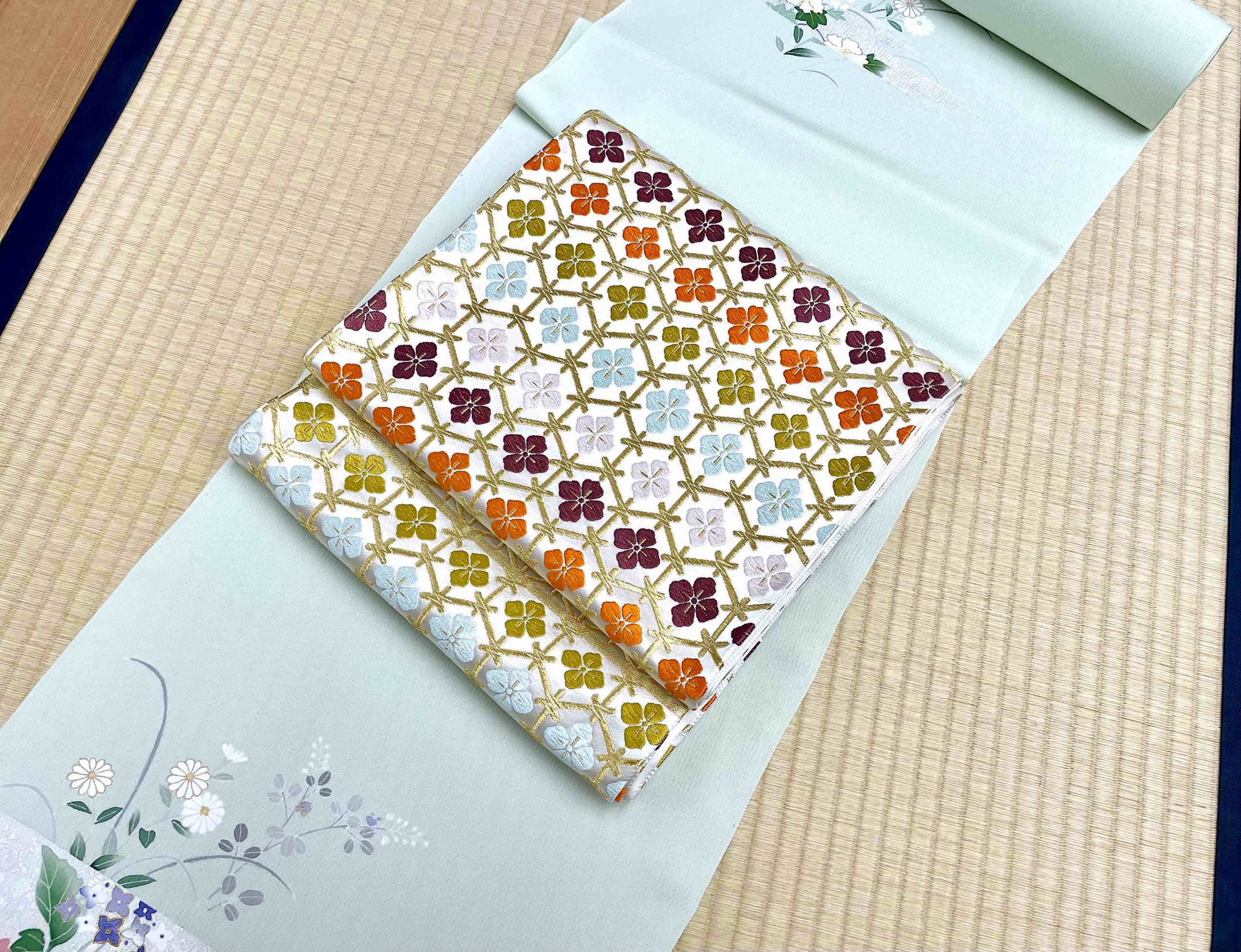
Pursuing the Joy of the Customer
The Essence and Origin of Commerce
Mr. Kamei, a dynamic new leader, was appointed President and CEO of Erizen in September 2021. Amid the challenges of the COVID-19 pandemic, the kimono industry has faced increasing difficulties, making the vision and drive of the next generation more essential than ever. Mr. Kamei is one such figure — deeply passionate about the future of the industry. When asked about his outlook, he pointed to a key theme "community".
“To grow the community of kimono lovers, I believe the entire industry must come together under a shared mission — to increase the number of people who wear kimono. Today, no single company can thrive in isolation.
The landscape has expanded to include not only kimono boutiques but also secondhand sellers, rental services, and online platforms. While embracing this diversity, we must also define what Erizen uniquely offers. For us, that means returning to face-to-face interactions — and to one-on-one commerce, in the truest sense.
We don’t simply sell things because they exist. We ask: What is the customer struggling with? What would bring them joy?
I believe that is the true essence — and the very origin — of commerce. It’s a role I hope to carry forward with deep respect for the values passed down by those who came before me.”
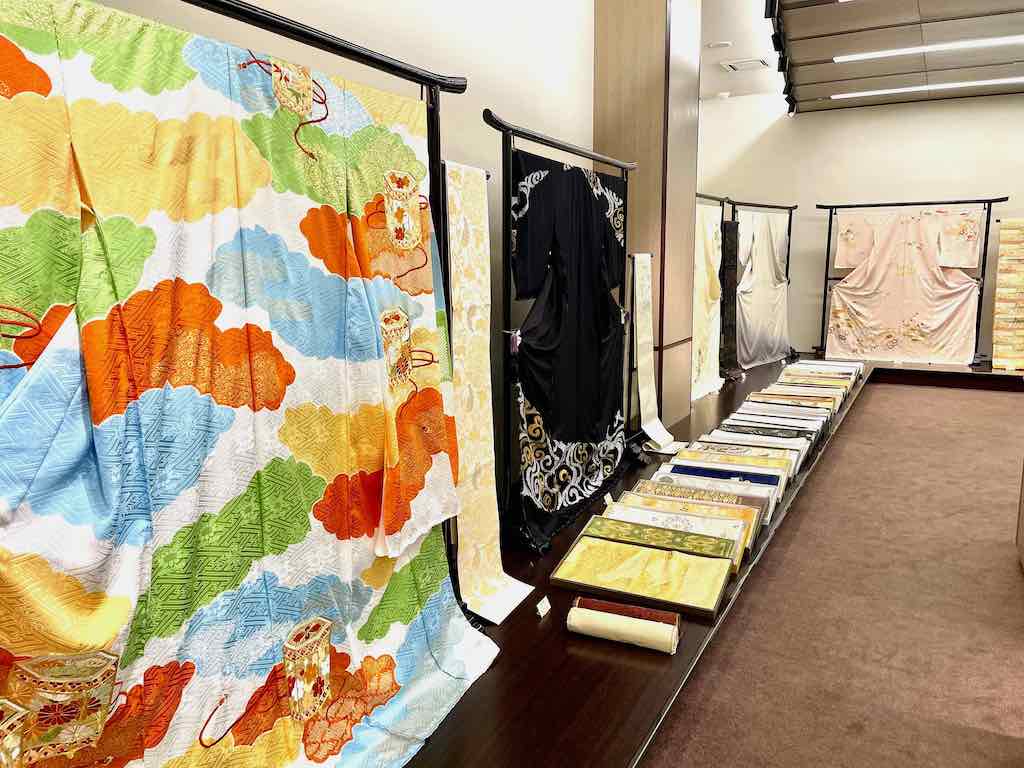

See Also : Shop Guide | Erizen – Kyoto Main Boutique
See Also : Shop Guide | Erizen – Ginza Boutique
See Also : Shop Guide | Erizen – Nagoya Boutique
__________________________________
Erizen – Kyoto Main Boutique
49 Otabi-cho, Shijo Kawaramachi, Shimogyo-ku, Kyoto City, Kyoto Prefecture
075-221-1618
Official Website>>
__________________________________

